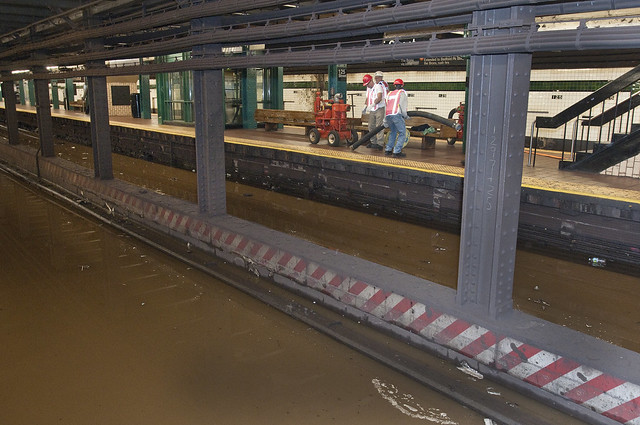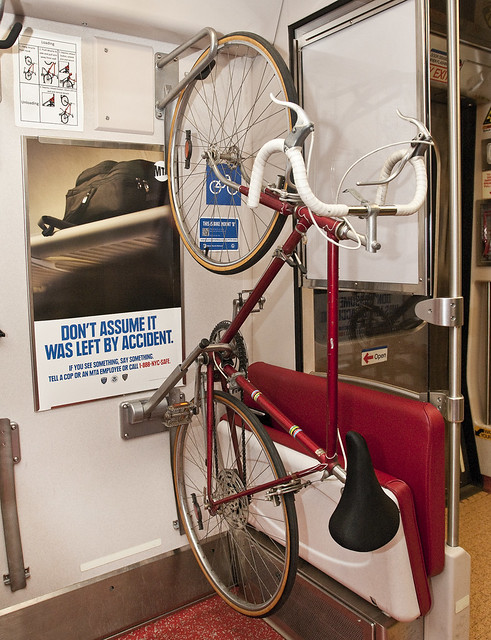Over the years here, as I’ve tried to develop a semi-coherent argument for public transit investment at the expense of automobiles, I’ve occasionally returned to the idea of the parking space. Two years ago, I said the city could fund transit by raising on-street parking rates, and I’ve argued in favor of residential parking permits as a way to raise revenue for anything from street repair and maintenance to public transit investments.
My biggest complaints about parking spaces concern the way we use space and the way we charge for it. In New York, everything costs a lot. Housing prices are high; office rates are high; parkland is at a premium; even sidewalk space has whittled down over the years. Yet, cars get away with parking for free. In essence, you have around two tons of inert metal taking up precious urban space and paying nothing for in exchange for the privilege.
In his City Room column today, Clyde Haberman plays off of the deactivation of the last Manhattan parking meter to wax poetic on parking spaces. Much like the death of the token brought about thought-provoking reflections on mass transit, so too has the death of the parking meter. Muni-meters, after all, free up space. No longer are cars bound by parking meters, and that can be both good and bad for on-street parking.
Haberman’s point, though, is a different one. “Why,” he asks, “is public space, a most precious commodity in this city, allowed to be used as a private storage area?” He continues:
Years ago, I asked in a column if it would be all right for a New Yorker in a crowded apartment to put a chest of drawers on wheels and leave it at curbside — observing all parking rules and taking a chance on theft. The very idea was, of course, absurd; you can’t store personal property on the street.
Why, then, is it O.K. to do that when the wheeled property is called a car?
If public space is to be used for this private purpose, perhaps what the city needs to do is greatly expand the areas where people must pay for the privilege.
Not that this could be done without fierce resistance from some on the City Council and in the State Legislature. Generally speaking, when it comes to the proper place of the automobile in this crowded city, what we have, as Cool Hand Luke found out in his own way, is a failure to communicate.
I don’t believe cars are inherently evil. My family has lived in New York City for my entire life, and we’ve always owned a car. I’m enrolled with the AAA and and card-carrying member of ZipCar. I’m also sympathetic to those who say that fees and taxes in New York are getting out of hand. Parking, though, is a market-based solution. If the market is willing to support significantly higher parking rates, why does New York continue to squander a money-making resource while it gives premium space away for free?










 (Overnight)
(Overnight)



 (Overnight)
(Overnight)





 (Rockaway Shuttle)
(Rockaway Shuttle)